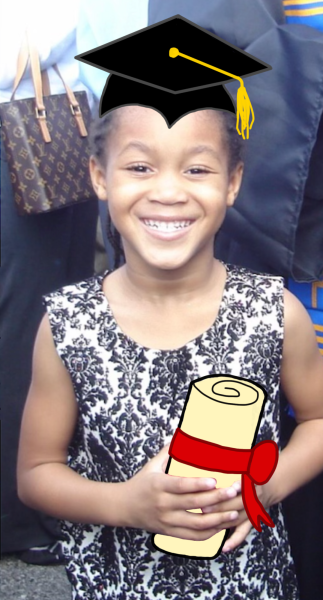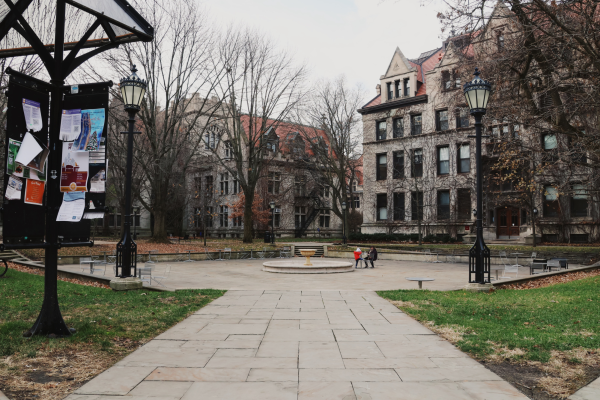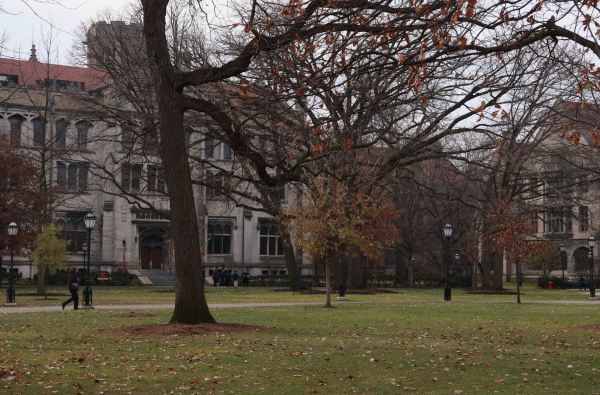Pence and Cheney Come to Campus: What Our Guest Speakers Reveal About Campus Conservatism
Representative Liz Cheney and former vice president Mike Pence sat on the same stage but received wildly different applause.
December 13, 2022
Members of the UChicago community gathered in Mandel Hall on November 11 for “In Conversation with Rep. Liz Cheney” and reentered the same theater on November 29 for “On the Record with Vice President Mike Pence.”
I think it’s a fair estimation to say the theater was filled with older, left-leaning adults. Representative Liz Cheney received two standing ovations and eager applause from this crowd, and every time she said “democracy” there was a concert of head nods. It sounded like my parents when a plane lands, and I couldn’t help but laugh. A crowd who almost certainly voted for Clinton, Obama, and Biden was enamored with her, while the campus conservatives from the Chicago Thinker were trying to turn the event into the “Roast of Liz Cheney.”
Anticipating a crowd similar to the one that gathered for Cheney, I was curious to see how Pence would be received. Let me first remark that Pence and Cheney are not made in the same image. Cheney’s attention to January 6 is unmatched by any other Republican, and her political ostracization is unenviable. But the event was a nice reminder that the bar is low. Cheney was the first to admit that she voted with Trump 93 percent of the time.
Cheney’s relationship with Trump before January 6 was barely touched on during the event. The moderator let her off too easily, and the same can be said for student questions—at least for the few that managed to slip past the Chicago Thinker’s blockade at the microphone. In our fanaticism, we failed to ask why she went along with Trump for four years, especially since the events on January 6 were prognosticated before Trump spoke at the Ellipse that afternoon.
To my surprise, the crowd, similar to the one that gathered for Cheney, greeted Pence with mild applause and tender silence. The only standing ovation came from members of the Chicago Thinker at the conclusion of the conversation.
I have to admit: I wrongly predicted the response from the audience. I assumed the crowd would applaud Pence for his actions on January 6, and I assumed the Chicago Thinker would try to smash his political wings as they did with Cheney.
I’m trying my best not to be critical, but I’m confused. While the Chicago Thinker’s articles only reflect the opinions of the authors, it’s telling that Cheney was featured in an article entitled, “How Liz Cheney Lied to Me at an IOP Event,” whereas Pence was featured by an article entitled, “Vice President Mike Pence, Christian Warrior, to Visit UChicago.” Why does campus conservatism champion Mike Pence but criticize Cheney? Certainly the Thinker does not represent the views of every conservative on campus, but it is the dominant (and most vocal) conservative group.
Maybe I’m overly optimistic, but I assumed campus conservatives would be more favorable to the intellectual conservatism of Ronald Reagan and Barry Goldwater and the never-Trump movement, instead of the conspiratorial and culture war rhetoric of Donald Trump and Fox News.
Though Pence is more socially conservative, Pence and Cheney share similar conservative philosophies (as already stated, Cheney supported most of the Trump administration’s policy agenda). So if it’s not a difference of philosophy, why do they elicit such opposing reactions from campus conservatives? The only explanation I can find is our speakers’ fundamental disagreement as to Trump’s role on January 6.
Apparently, campus conservatism isn’t that different from the mainstream Republican Party as I anticipated. The speaking events revealed the most obvious and sometimes forgotten fault line in the party: Donald Trump.
Cheney unequivocally condemned the former president. There was no obfuscation with Cheney. I left the event knowing exactly how she felt.
The same cannot be said for Pence. Pence was noncommittal about holding the former president accountable; instead, Trump remained almost unnamable by Pence throughout the event. Any targeted questions by Axelrod were diverted and unanswered.
Pence was unwilling to draw contrast between himself and his predecessor, and he refused to offer attribution when it comes to Trump. For a man of faith, Pence made no moral estimates about the former president’s actions. Everything was contextualized under the vocabulary of the Constitution. Pence said he had no Constitutional power to overturn the election, but never said it would be wrong to do so. He said he respects the American people’s “right” to vote for Trump’s confrontational style, but never said whether he disagrees with or supports this rhetoric. Pence deflected every question by reaffirming the rights in the Constitution, and when the question called for a more editorialized response, he hid under the unarguable call to God.
Originalism and faith gave Pence a convincing hall-pass from making his own judgments.
The two events revealed the fine line Republican politicians must walk with Trump and election denialism to avoid party excommunication. Apparently, there is an important difference between the seditious mob and Trump. Condemning the former is acceptable, but condemning the latter is too far. Pence has narrowed his commentary on election denial to the events of January 6, which is more forgivable to the Republican base than censuring Trump.
It’s worth mentioning that until January 6, Pence was complicit in the sordid scheme to overturn the election. He helped steer the ship into the storm then jumped off when he heard thunder. But his “heroism” on January 6 perfectly manages the desire to appear loyal to the Constitution without completely splitting ties with the former President and his supporters, which became clear in Mandel Hall.
Neither speaker is a purist, but I have more admiration for someone who can be forthright in front of an audience rather than losing any form of clarity in order to please everybody. Campus conservatism, it seems, disagreed.
At a time when it feels like nothing is disqualifying anymore, I assumed a place like UChicago would feature a conservatism that still believes that character matters.
Henry Cantor is a second-year in the College.












